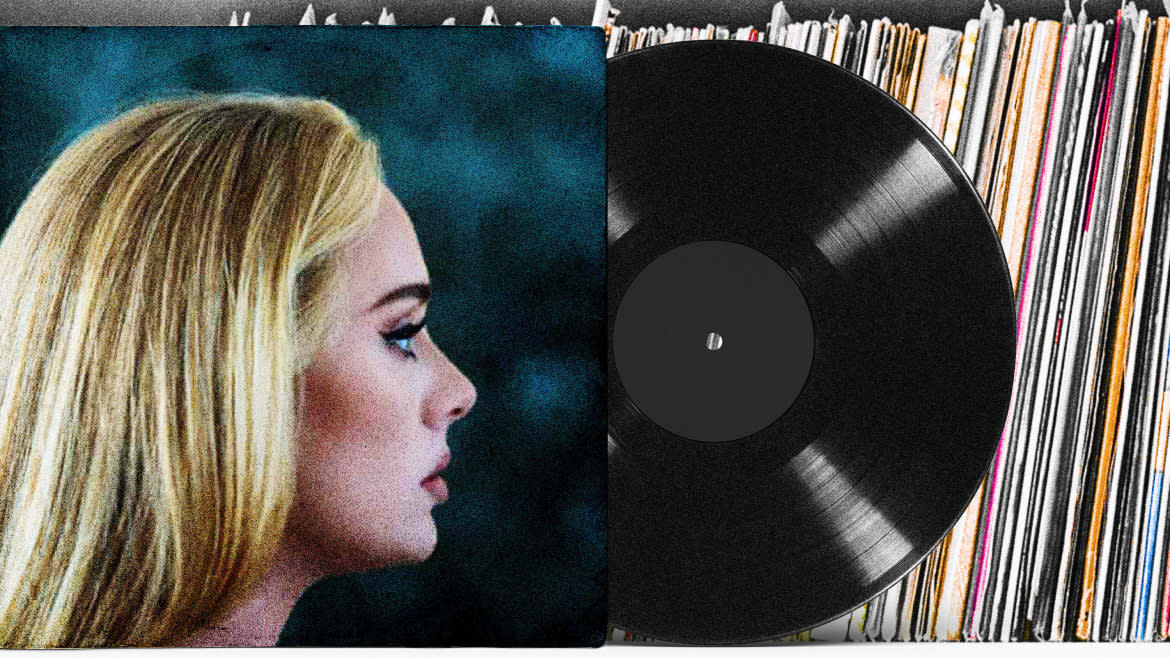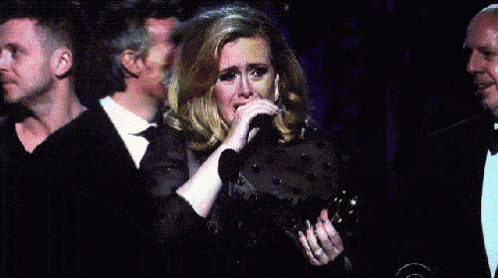Adele’s New Album ‘30’ Is a Masterpiece of Heartbreak and Honesty

- Oops!Something went wrong.Please try again later.
We handed Adele the anvil and our consent, even our eagerness: Do your best with it. Wallop us. Pummel our hearts until they shatter. Absolutely ruin us with your music.
With 30, she obliges.
The new album, released Friday, finds the singer processing the pain of her divorce from her ex-husband. For someone with a reputation for articulating complex and unspeakable emotions through soaring ballads, she’s operating at a new level here. Her voice is both richer and more dexterous than it’s ever been, alternately contorting itself around and booming mightily over lyrics so deep and observant, it’s as if they’ve been exorcised from the depths of her being.
There is going to be a lot of talk about how impressively open she is about feelings and actions that are not always flattering, but indisputably real. We will be histrionic about how much it makes us all cry. There will be reports of keyboards short-circuiting across the globe after so many tears fall onto them this Friday. Wine shortages will wreak havoc as heartbroken fans frantically seek some sort of emotional balm. Investigations will be launched into whether Adele is in cahoots with Big Tissue. Kleenex executives, what hold do you have on this woman?
But that shouldn’t overshadow the monumental accomplishment here. A singer of unprecedented popularity is taking major risks on a collection of new music, a refusal to take the easy route of replicating her past successes. She’s instead produced a collection of songs that challenge herself musically, challenge her voice, and challenge, in lyrical content, just how much vulnerability and openness people are willing to accept or can even process.
Taylor Swift Fans’ Harassment of Jake Gyllenhaal Has Gotten Very Ugly
The emotional acuity here is astounding. Things that the heartbroken, the betrayed, the guilty—all of us—have experienced or felt but never could name, let alone understand, are put to song. Making you feel seen, it turns out, is not Adele’s talent. It is her calling. After listening to 30, I fired my therapist. We all should. Who needs therapy anymore when we have Adele? (I am kidding. Please don’t fire your therapist.)
The crowning achievement of 30 is “I Drink Wine.” Contrary to the title, it is not a playful, winking exploration of the instinct to drown sorrows with a bottle. It’s an act of confession—a person revealing their darkest secrets and preoccupations when it comes to love and relationships. She then confronts how that has hurt both her partner and herself. ”How can one become so bounded by choices that somebody else makes?” she sings. “How come we’ve both become a version of a person we don’t even like?”
In 30, Adele works through how she got here—how and why she ended a relationship, and what does she do now? It’s a scary place to be, by yourself. Can she weather that, let alone thrive, in the aftermath of such sorrow? What do you sacrifice for love, and can you ever grow it back on your own? And if you can’t, whose fault is that?
These questions swirl throughout the album, and the beauty lies in how Adele offers up no easy answers. There’s no conclusion about what she wants from love, what she wanted from herself, or even what she wanted from the marriage that didn’t work. That ambiguity is so frustrating when you’re going through it, something that is reflected in Adele’s voice, like surviving a breakup means solving a riddle that can’t be solved. If someone else isn’t responsible for your happiness, then who is to blame for your heartbreak?
There’s a narcissism to loneliness. Is it a choice? Do you have control over it? So much of 30 centers around what a person can or should do to make themselves feel better, yet never dismisses the idea that there is necessity and even power in feeling the pain. To really feel the hurt and understand what is behind it—even if that, at times, can seem impossible—so that you can change from it. In songs like “Cry Your Heart Out,” “Woman Like Me,” and especially “Easy on Me,” it’s almost as if she’s coaching herself through that process.
I think so many people were shocked when “Easy on Me” came out, the long-teased first single from the rumored “divorce album.” Fans seemed to expect one of two things: a massive-scale event of emotional devastation, or scorched-earth rage at an ex that has seemed to define most female stars’ post-breakup music. “Easy on Me” was instead a tender plea for empathy rooted in shared love and shared past. That surprised and wrecked a lot of people. (Read: me.)
Rather than pure, diabolical sadness, it chronicles the excruciating experience of a great love that ended, the difficult journey of coming to that realization, and staring down the hurt that’s about to come. But it is also about acknowledging that the love was something to savor, to hold onto, and to be grateful for. Memories don’t go away because a relationship ends. But can enough forgiveness and compassion—from them, from yourself—be there so you can get to that healthier place? “Easy on Me,” with its maturity and unexpected nuance, hinted at what was to come from 30, a complexity and emotional specificity that manages to be more relatable than breakup music that amps up the misery. There are turns of phrase and breaks in Adele’s voice that will make you cry, startling you because they’re so true. If all anyone truly wanted was a soundtrack to weep along to while downing a pint of Ben & Jerry’s and some pinot grigio, 30 delivers. But with her remarkable vulnerability and candor, Adele allows for something else to happen: You wind up learning about yourself.
In “Hold On,” she’s acknowledging the emptiness she feels because of her actions, validating her extreme loneliness—“Everyday feels like the road I’m on might just open up and swallow me whole”—but also delivering herself a pep talk that, despite these feelings, she’s still strong and will feel better again. The ballad begins with the soft twinkle of piano keys and Adele’s voice at a quiet lilt—a spare arrangement that, over the course of six minutes, crescendos to a chills-inducing, booming triumph, emblematic of the transformation she makes herself.
“To Be Loved” has her confronting the ways she wasn’t true to herself out of a desperation to make things work. It’s another one that builds as an emotional mirror. Her voice is so raw, nearly hung out to dry by such a stripped-down arrangement. The build here is in volume.
There is no “Hello” in 30, a choice Adele has said she purposefully made. But such a grand, accessible track would be out of place here among the edginess, the messiness, and the danger at play: what it means to be fully OK with yourself, as yourself. That’s an audacious proposition, and certainly a frightening one. On “To Be Loved,” Adele’s voice doesn’t so much grow to a loud belt as it cries out for empowerment.

Things start to feel a tad voyeuristic—that there is so much honesty and self-exploration happening here that you might be intruding or shouldn’t be witnessing it. But that also seems to be the gambit Adele is making, and she does it from the beginning.
The third track on 30, “My Little Love,” finds Adele addressing her child, singing through her guilt and regret for what his life will be like now that his parents are no longer together. Just when the mere concept of such a song is enough to shred your heart into bits of confetti, she plays voice recordings of herself actually speaking with him: “Mommy’s been having a lot of big feelings recently… I’m feeling a little trapped. I feel a bit confused… I feel like I don’t really know what I’m doing.”
Adele’s albums have never been all doom and gloom, though from the way people talk about her music you’d think she was a sentient storm cloud. That buoyant, infectious personality that people connect to so deeply is on display in tracks like “Can I Get It,” a welcome upbeat, sassy reprieve. “Oh My God” is as close to a pop banger as 30 has. Then there’s “Cry Your Heart Out,” an Amy Winehouse-invoking retro ballad in the grand Motown tradition: lyrics that are absolutely ruinous but crooned over a bouncy, soulful beat.
Great expectations are almost never met. With 30, Adele seems to have somehow operated in a vacuum. There was something specific that her fans clearly wanted from “an Adele divorce album.” She doesn’t necessarily deliver that. Instead, she delivers something far more interesting: an album for herself.
Get our top stories in your inbox every day. Sign up now!
Daily Beast Membership: Beast Inside goes deeper on the stories that matter to you. Learn more.

